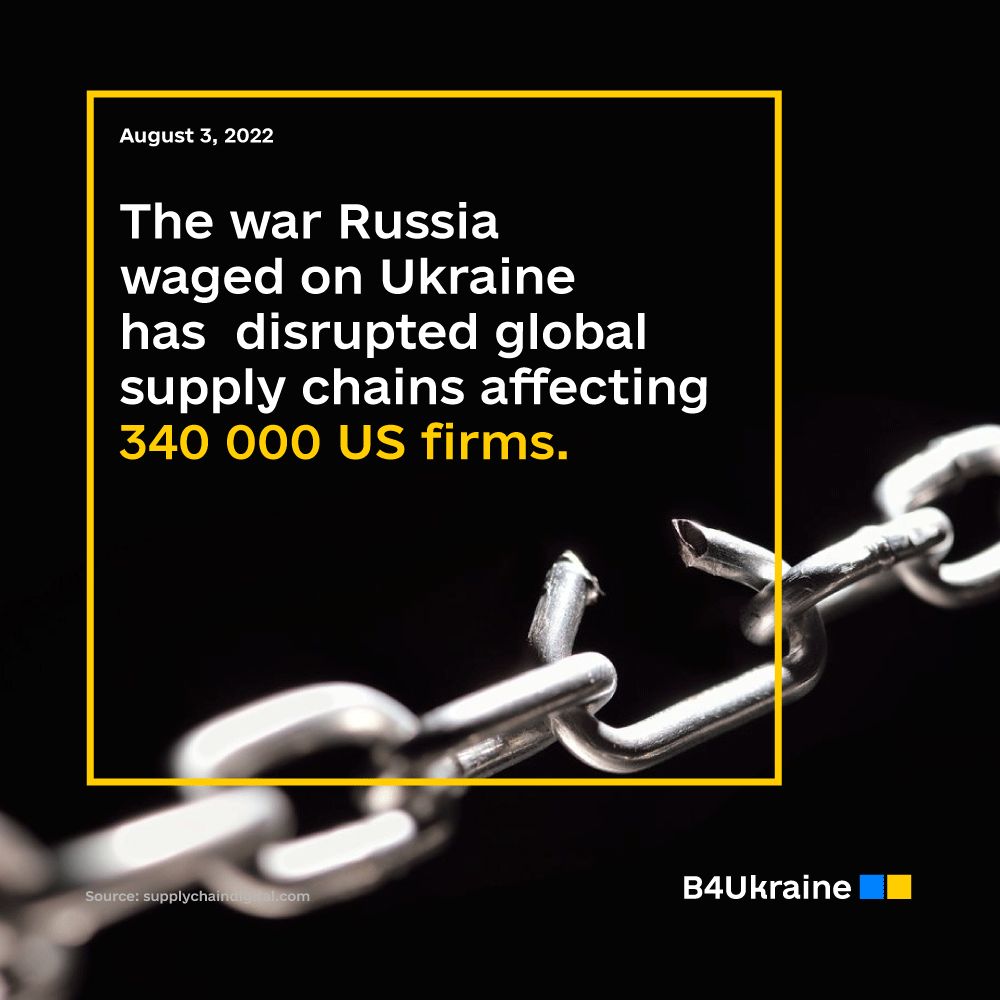
The full-scale war Russia waged on Ukraine is not solely a regional problem but is taking a toll on the supply chain resilience of businesses from across the globe. According to Supply Chain Digital Magazine, 2,550 large US companies have a Tier 1 supplier from Russia or Ukraine. And then there’s the Tiers 2 and 3 Russian and Ukrainian suppliers that deliver to the Tier 1 suppliers. The number of US companies impacted is 80,000 when looking at Tier 2, and 340,000 US companies when you go all the way to Tier 3.
If you take the global picture, the damage is several times bigger than that. The reason behind the supply chain disruption is that Ukraine and Russia provide a lot of resources, both natural and labor. Ukraine is an important supplier of agricultural products and neon, used for semiconductors production.
With Russia, it’s oil and gas. Russia is number two in gas production in the world and number three in oil production. While Russia is weaponizing its energy supply and the West is trying to reduce its energy dependency on Russia, energy prices soar. A number of smaller American companies are closing because they do not have the money to cover energy costs. This would never happen, if not for Russia’s war-hungry politics.
Other supply chains are at risk as well. Industrial fertilizers are produced with a large amount of crude oil, but also with ammonia, urea, potash, and processed phosphates, all of which Russia is a top exporter, as KPMG points out. Russia supplies 20% of the global production of semiconductor-grade nickel even though it is possible to create manufacturing sites elsewhere.
There is also a problem in the shipping industry. Russia accounted for about 13% of Rotterdam’s total throughput last year and about 8% of container handling. Not to mention the fact that dozens of international businesses placed factories in Russia to make goods for all the markets in the region.
While the problems with the supply chains which include Ukrainian suppliers stem only from the current war and will finish together with it, working with Russian suppliers poses a systematic threat to the resilience of the supply chains. Russia is a country with a long history of waging unprovoked wars: two Chechen wars, the war in Georgia, the war in Syria, the annexation of Crimea with a hybrid war in the Donbas region since 2014, and now the full-scale invasion of Ukraine. Even when the war in Ukraine ends, there is a good chance that the next one will follow with any of the other neighboring countries. What comes with wars are sanctions.
Being the most sanctioned country at the moment and having a rich history of invading neighboring countries, Russia has the highest probability of remaining under sanctions for a while and being sanctioned again. Thus, Russia never was and never will be a reliable partner.
As Deloitte suggests, to manage the risks now the companies that work with Russian suppliers should consider onshoring and friendshoring: “Bringing supply chains home can offer governments and companies more control and remove the volatility of foreign dependence”. But onshoring is not an option, for example in case of the semiconductors, friendshoring is the way to go. “The reorchestration of critical supply chains by swapping risky foreign suppliers with close allies and partners may offer a pragmatic solution,” says the consulting firm.